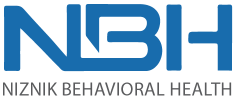Coping with Holiday Triggers: How To Manage the Emotional Challenges in December
If this time of year is difficult for you, please know that you are not alone. For millions of Americans, the holidays are challenging for a number of reasons. Grief for a lost loved one, feelings of loneliness, and traumas surrounding this time of year can make it difficult to enjoy the festivities. Unfortunately, many turn to illicit drugs and alcohol to cope, using these substances to escape or numb the pain. This decision can have serious consequences; this time of year see an increase in overdose and suicide.
Learn how to cope with the emotional challenges of the holiday season without the risk of addiction, relapse, or fatal overdose.
Coping with Holiday Triggers
Shifting from the daily routines of work and school can leave some people feeling overwhelmed. To avoid the full-blown panic of forgetting a present at the last minute, it’s important to plan shopping and holiday meals early. It’s also an excellent idea to connect with support groups like Alcoholics Anonymous, Narcotics Anonymous, or Cocaine Anonymous to make sure your sobriety remains a priority even during the festive season.
To distract from the pressures of the holidays, reduce the temptation of over-indulgence. Go shopping with a friend or family member, or to participate in a physical activity class. This time of year also presents plenty of opportunities to volunteer and give back to the community. Check in with your local food banks, homeless assistance programs, or animal shelters to fill your days with purpose and service.
It’s also okay if you need to take some time to yourself. Take the time to check in with yourself and your needs. It’s okay if you need to take a breather from all the hustle and bustle of the holidays and just have a quiet self-care day. Be mindful not to completely disconnect from your support system, as this can be an early sign of potential relapse.
Understand the Connection Between Holidays and Addiction
While there is no single reason people turn to alcohol or drugs, research shows that people dealing with depression, stress, loss, and grief are more prone to turn to substances to cope. The holidays can be a major trigger because it may highlight perceived shortcomings or absence in your life. It may also highlight family dysfunction and bring forward complicated emotions that are hard to navigate. Being aware of why the holidays may be difficult for you and being prepared to use more beneficial coping mechanisms can help you weather the season without risking your sobriety.

Learn How to Change Your Thinking
If you have a complicated relationship with the holiday season trying to navigate this time of year can be challenging. Negative thoughts and emotions can quickly spiral into poor coping mechanisms and cause you to fall back into harmful habits.
This is why so much of the recovery process focuses on mindfulness and self-awareness. Being able to recognize the thought-action cycle allows you to recognize early warning signs of relapse and choose better alternatives. Challenging the psychological source for addictive behaviors allows us to develop new, more beneficial habits as we grow through recovery.
Make a Plan
It’s essential to develop a plan to be able to enjoy the holidays while simultaneously mitigating the risks that can arise. When developing your plan, remember:
- Tell someone you trust to help you stay accountable.
- Create a contract with your support system. Detail the steps you’ll take to prevent relapse and your reasons for remaining sober. Putting your plan in writing helps you stay on track.
- Keep emergency contact information such as the National Suicide Prevention Lifeline, National Eating Disorder Helpline, or the Addiction Resource Center readily available in case you need them. Niznik Behavioral Health alumni have access to our specialized relapse prevention hotline 24/7/365.
- Connect with your community. Sharing your thoughts and feelings during this season with others who have similar experiences can help immensely. Voicing your concerns and working through them in group therapy sessions or during AA/NA meetings is a great way to get them out in the open and ease your stress or anxiety.
Set Boundaries
Prioritizing sobriety during the holidays is vital to avoid unintentionally falling back into old habits. This includes setting and enforcing boundaries both with yourself and others. While it can be tempting to push the limits in early recovery, doing so can quickly lead to relapse.
The most important thing to keep in mind when setting boundaries is consistency. You are outlining the treatment and behavior you are willing to accept or tolerate from yourself and those around you. Getting into the habit of allowing exceptions to your boundaries undermines their intended purpose, especially when it comes to recovery. Remember, sobriety isn’t something you can do halfway. Don’t allow others to draw you back into bad habits in the name of ‘holiday fun.’ While the temptation may arise to indulge as part of your holiday celebrations, it isn’t worth squandering all your hard work.
As families and friends once again gather for the holidays, be clear with your boundaries and make the best decisions for you. This may mean choosing not to attend certain gatherings or maintaining distance from people who do not have your best interest at heart. If this is your situation, know that there are people by your side who are rooting for your continued success.
Assess your Mental Health
A recent study found that 30 percent of individuals who died from overdose had not received any treatment for substance use disorder in the past year. Often drug and alcohol abuse stems from underlying causes such as anxiety, depression, or unaddressed trauma. Recovery begins by addressing these mental health concerns and finding support for healing and growth.
Remember, you are not alone.
The holidays can be painful for many, especially those who have experienced loss or struggle with mental health conditions. It can be even more challenging if you’ve lost someone to overdose or suicide. Having someone there to support you can make a difference, as can calling the Substance Abuse and Mental Health Services Administration’s (SAMHSA) National Helpline at 1-800-662-HELP (4357).
Reach Out for Help
With clinical excellence and quality treatment outcomes for depression, anxiety, trauma, and substance abuse disorders, Niznik Behavioral Health is here to help.
With twenty-four-hour assistance, you can speak with someone immediately about your needs seven days a week. They are people who understand what it means to be gripped by addiction and can help you see a way out of that dark hole. Niznik Behavioral Health offers a wide range of treatment options, all tailored to fit the needs of the individual. The client’s needs are a top priority as we navigate treatment together. You’ll never feel alone with an expert therapist, recovery coach, doctors, and after-care alumni support.
What about New Year’s?
Many people choose to make New Year’s resolutions. Many of these resolutions involve eating healthier, exercising more, and getting more sleep. The holidays can be challenging if you find that you have not stuck to your new year’s resolutions.
If you or a loved one has relapsed into drug or alcohol addiction, call Niznik Behavioral Health now at 888-699-1409..
——————————————————————————————————————————-
SAMHSA, Center for Behavioral Health Statistics and Quality. “Key Substance Use and Mental Health Indicators in the United States:Results from the 2019 National Survey on Drug Use and Health.” Key Substance Use and Mental Health Indicators in the United States: Results from the 2019 National Survey on Drug Use and Health, 2019, https://www.samhsa.gov/data/sites/default/files/reports/rpt29393/2019NSDUHFFRPDFWHTML/2019NSDUHFFR090120.htm.

